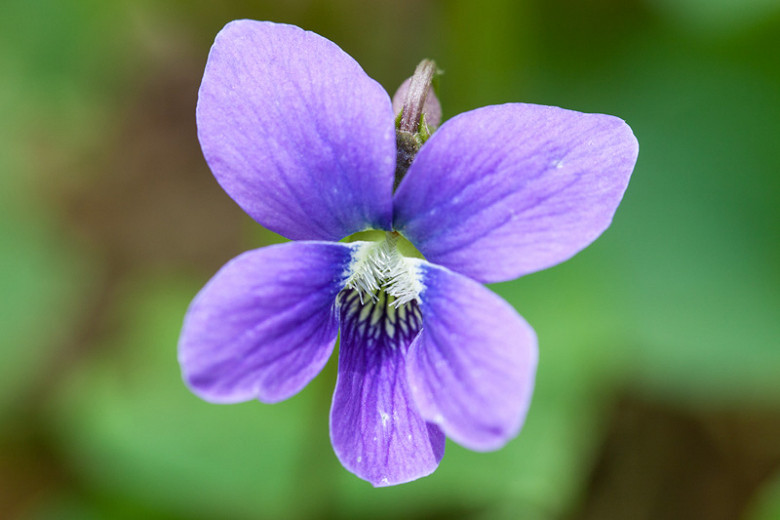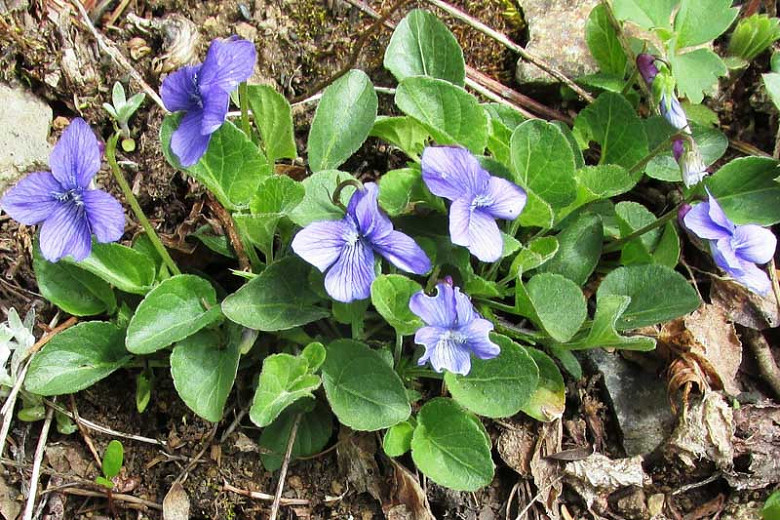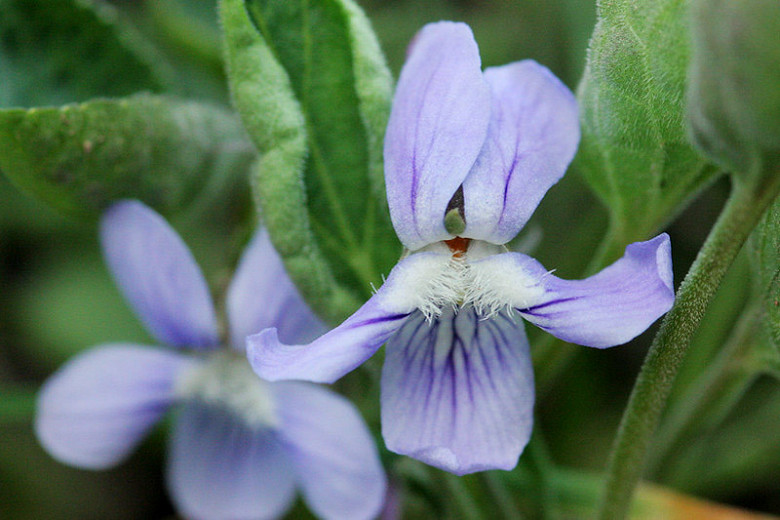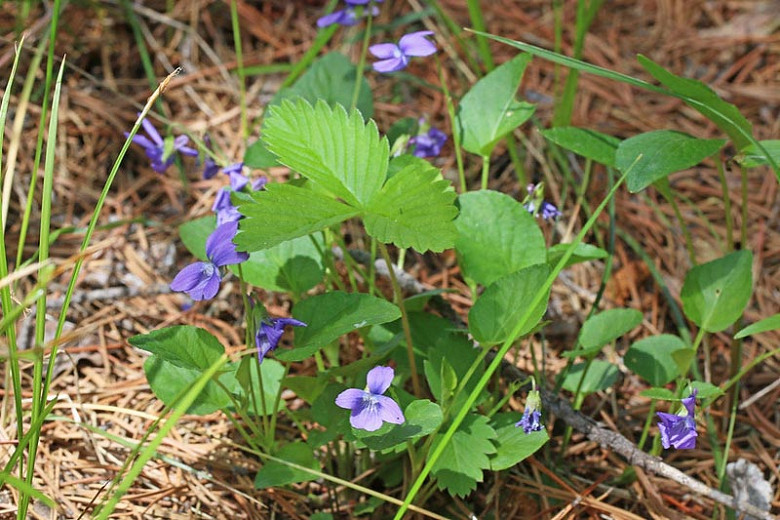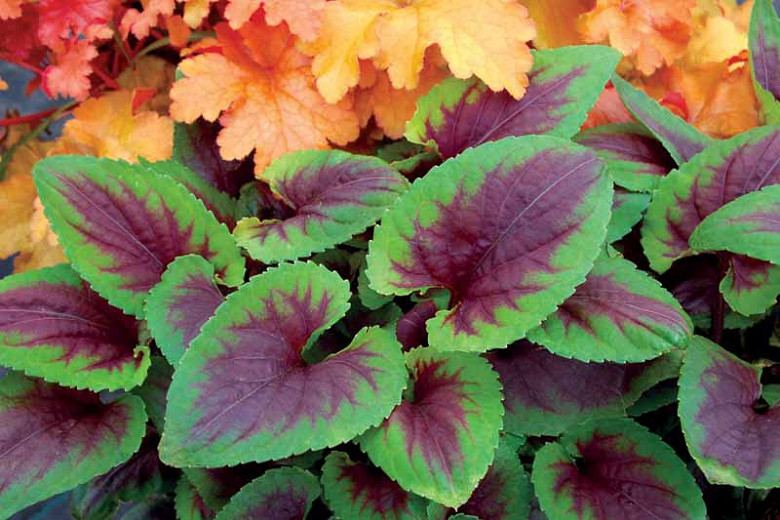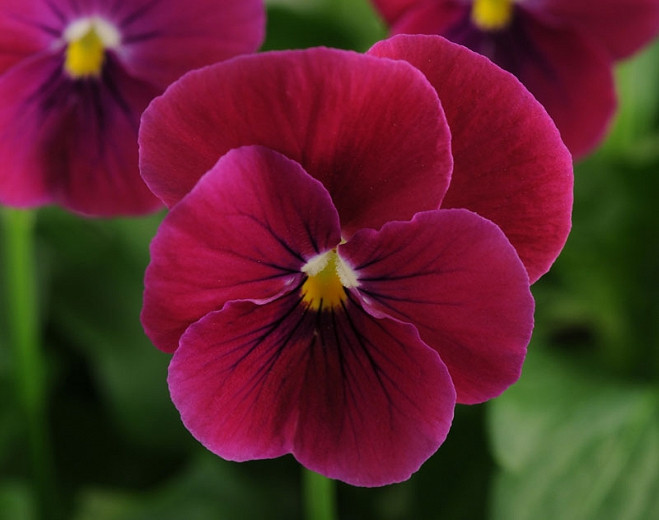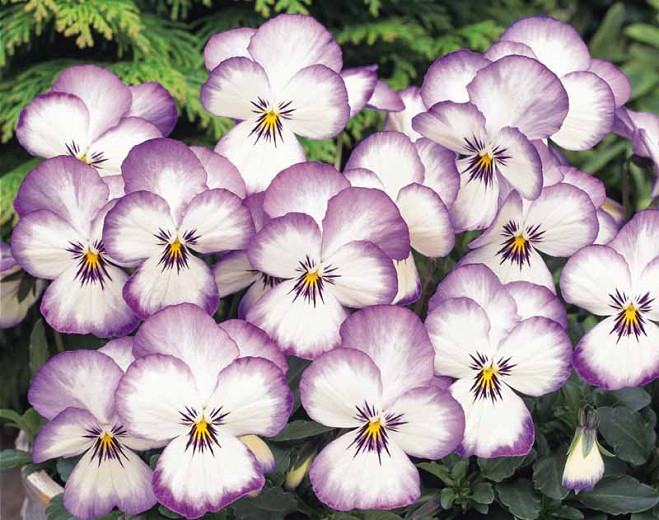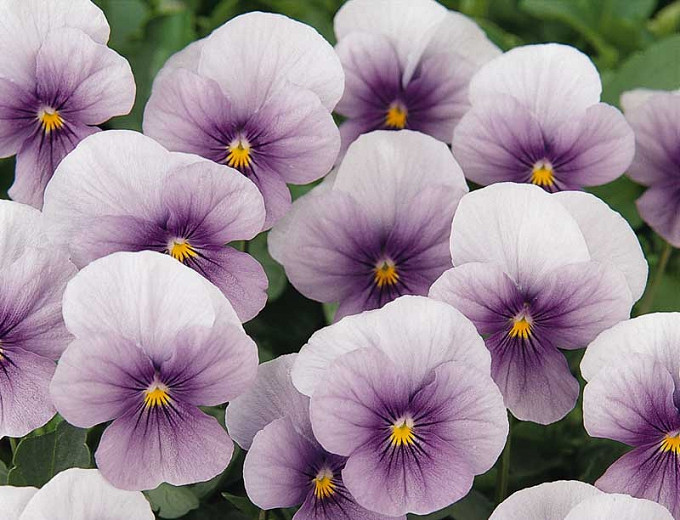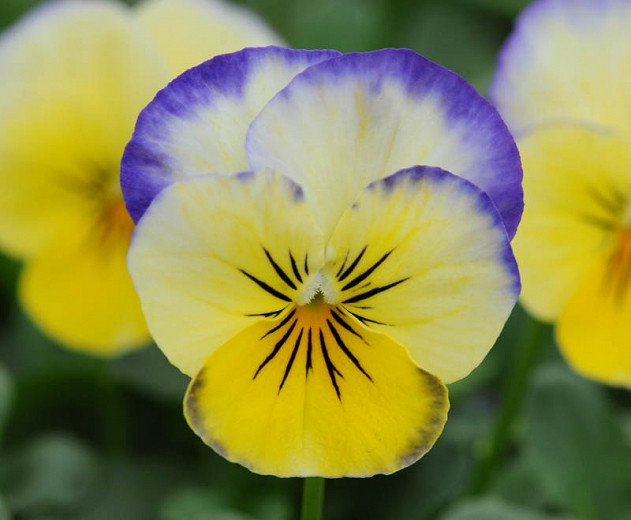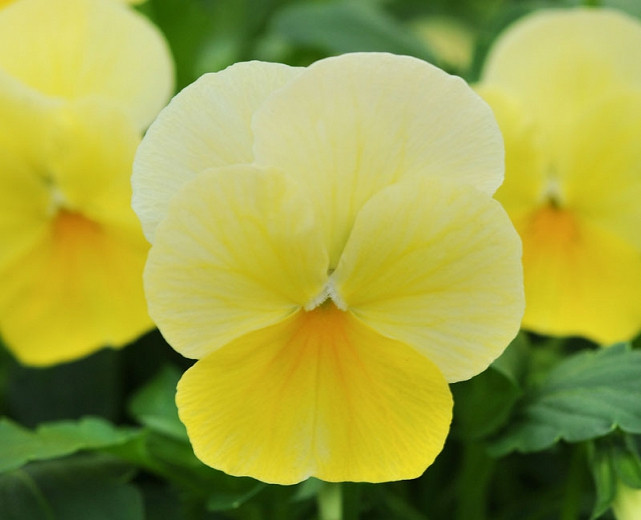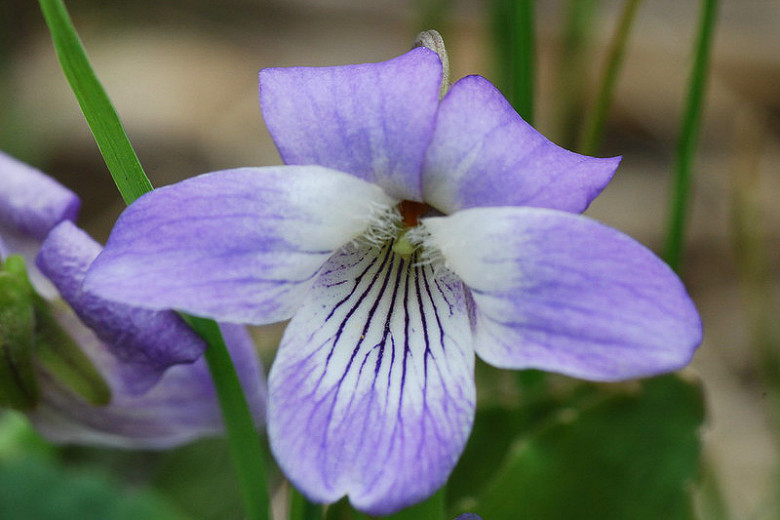Viola adunca (Western Blue Violet)
Native to eastern and western North America, Viola adunca (Western Blue Violet) is a low-growing, spreading perennial forming a neat clump of heart-shaped, dark green leaves. Blooming in mid-spring and sometimes intermittently into late summer, attractive, small, lavender-blue flowers, 1 in. wide (2.5 cm), with conspicuous white throats and bright orange stigmas, appear above the foliage. Extremely fragrant, the blossoms hang at the tips of slender stalks. Easy, hardy, and adaptable, Western Blue Violet takes a wide range of soils and exposures. It also tolerates some drought. Western Blue Violet is well-suited to woodland, banks, or wild gardens where it spreads by self-seeding and creeping stems. The young leaves and flower buds can be used in salads or cooked as greens. The leaves are reported to contain more vitamin A than spinach, and one-half cup of violet leaves has as much vitamin C as four oranges. Tea can also be made from the dried leaves.
- Growing up to 3-6 in. tall (7-15 cm), this Violet will spread by self-seeding and creeping stems.
- A full sun to part shade lover, it is best grown in average, moist, well-drained soils. Will tolerate some dryness.
- This plant is very versatile and can be used on banks and slopes, beds and borders, underplanting shrubs and roses, cottage gardens, rock gardens, woodland gardens, or as a ground cover.
- Keep an eye out for slugs, snails, violet gall midge, powdery mildews, and pansy leaf spots. Deer resistant.
- Deadhead to prolong flowering.
- Propagate by seed.
- Native to Eastern and Western North America – Alaska to California, also Ontario to Quebec, and New Brunswick.
Requirements
| Hardiness | 4 – 9 |
|---|---|
| Climate Zones | 1, 1A, 1B, 2, 2A, 2B, 3, 3A, 3B, 4, 5, 6, 7, 8, 9, 14, 15, 16, 17, 18, 19, 20, 21, 22, 23, 24 |
| Plant Type | Perennials |
| Plant Family | Viola – Violets |
| Exposure | Full Sun, Partial Sun |
| Season of Interest | Spring (Mid,Late)Summer (Early,Mid,Late) |
| Height | 3" – 6" (7cm – 15cm) |
| Water Needs | Average |
| Maintenance | Low |
| Soil Type | Chalk, Loam, Sand |
| Soil pH | Acid, Neutral |
| Soil Drainage | Moist but Well-Drained |
| Characteristics | Fragrant, Showy |
| Native Plants | United States, Alaska, California, Midwest, Iowa, Michigan, Minnesota, North Dakota, South Dakota, Wisconsin, Northeast, Maine, Massachusetts, New Hampshire, New York, Vermont, Pacific Northwest, Idaho, Oregon, Washington, Rocky Mountains, Colorado, Montana, Utah, Wyoming, Southwest, Nevada, Arizona, New Mexico |
| Tolerance | Deer, Drought |
| Attracts | Butterflies |
| Garden Uses | Banks and Slopes, Ground Covers, Underplanting Roses and Shrubs |
| Garden Styles | Gravel and Rock Garden, Informal and Cottage, Prairie and Meadow |
